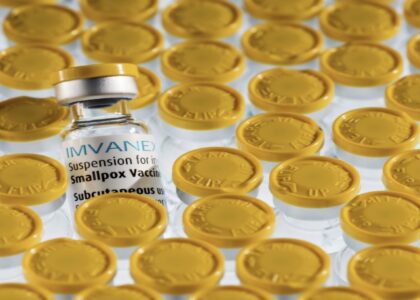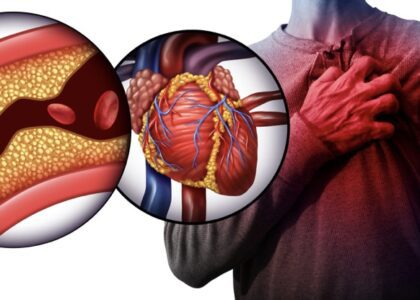Did you know that two in five Canadians will develop shingles in their lifetime? Shingles, or herpes zoster, can be developed by anyone at any age and can be unpleasant at the moment of commencement where shingles is present in more than 90% of adults. As people get older, their immune systems get weaker and the incidence increases after age fifty. However, there is no need to be afraid of shingles as in this article, CRC Health Centre will have a deep look at the effects of shingles and respond to your inquiries concerning shingles.
What are Shingles?

A shingle is a viral infection that causes a painful rash. Shingles can occur anywhere on your body. It usually looks like a single band of blisters going around your body. Shingles are caused by varicella-zoster, the same virus that causes chickenpox. Once you contract chickenpox, the virus stays in your body, which can activate as shingles years later. Shingles are not a life-threatening situation but it can be very painful. Vaccination and Early treatment can reduce the risk of shingles and reduce the risk of complications. The most common complication is postherpetic neuralgia. This is a condition whereby you experience shingles pain long after the blisters disappear.

What Do Shingles Look Like?
Herpes zoster often affects one side of the body; however, it can also affect the face. The eyes may be impacted in extreme circumstances. Typically, the disease lasts three to five weeks. After 1 to 5 days, a red rash develops, followed by blister formation. Blisters scab after seven to ten days.



Where do Shingles usually Develop?
Typically, shingles develop on the chest, back, neck, head, face, waist, or the area around the eye.
What are the Symptoms of Shingles?
Symptoms of shingles usually affect a small part of one side of the body.

These symptoms can include:
– Pain, burning, or tingling
– A red rash at the spot of infection
– Fluid-filled blisters that break and form scabs
– Itching
Some people also experience the following:
– Fever
– Headache
– Fatigue
Pains experienced from shingles can be severe. Depending on where the pain is, it can sometimes be confused with heart, lung, or kidney problems. Some people even experience shingles pain without ever having the rash. Most commonly, the rash develops as a cluster of blisters around the torso.
Who is Susceptible to Shingles?
– People over the age of 50 and those over the age of 60 may experience serious complications.
– Patients with chronic illnesses, such as rheumatoid arthritis, diabetes, chronic kidney disease, cardiovascular disease, or chronic obstructive pulmonary disease.
– People with weakened immune systems, such as those with immunological disorders (AIDS virus infection), cancer patients, and those who have used steroid medications like prednisone over an extended period.
What are the Complications Associated with Shingles?
Complications from Shingles can include:
– Postherpetic Neuralgia
For some people, the pain continues long after the blisters disappear. This condition is known as postherpetic neuralgia. It occurs when damaged nerve fibers send complex and exaggerated pain messages from the skin to the brain.
– Vision Loss
Shingles in or around the eye can cause painful eye infections that can lead to vision loss.
– Neurological Problems
Shingles can cause encephalitis, facial paralysis, or impaired hearing or balance.
– Skin Infections
If blisters are not treated properly, bacterial skin infections can develop.
What Treatments need to be Taken into Consideration?
When you have shingles, wash your hands frequently, cover the infected area and refrain from scratching it until the blisters have scabbed over.

Are Shingles Contagious?
Shingles is caused by varicella zoster virus (VZV), the same virus that causes chickenpox. The chickenpox virus remains latent (inactive) in the body even after a person recovers and the later reactivation of chickenpox can result in shingles. Shingles itself is not contagious and does not spread easily. However, active shingles patients can spread the virus when the rash is in the blister phase to individuals who have not received the chickenpox vaccine or who have never had chicken pox; as a result, these individuals will develop chickenpox.
Can Shingles Come Back?
After contracting shingles, one does not have lifetime immunity. Shingles may come back after recovery.
How is Shingles Treated?
There is no cure for shingles, but treatments do exist to manage the symptoms. Some of the treatments are:
Antibiotics may be given if an infection develops due to the rash. Anti-inflammatory drugs such as prednisone may be given if shingles affect the eyes or other parts of the face.
Antiviral drugs which can relieve discomfort and make symptoms go away sooner, especially if you start them immediately after you experience the first shingles symptom. They can also help prevent postherpetic neuralgia that can occur months and years later. These drugs include:
– Acyclovir (Zovirax®)
– Famciclovir (Famvir®)
– Valacyclovir (Valtrex®)
As soon as you suspect that you have shingles, see a doctor so they can recommend the best treatment options for you.
How to Prevent Shingles besides Vaccinations?
Improve your physical fitness, keep up with the proper outdoor activities and engage in sports. Increase your intake of fresh fruits and vegetables, soy products, salmon, eggs, lean meat, and other foods high in protein. Also pay attention to the nutritional value of your diet.
Is there a Vaccine to Prevent Shingles?
There are two vaccines, Shingrix and Zostavax, that protect against shingles. Shingrix has been shown to be over 90% effective in preventing shingles and postherpetic neuralgia. Shingrix is given in two doses at the upper arm. The second dose is received two to six months after receiving the first. The Shingrix vaccine is recommended for people over the age of 50 who are in good health and even if:
– You have had shingles before.
– You have already been vaccinated with Zostavax.
– Not sure if you have had chickenpox.
Ask your doctor, who knows your entire health history, if getting this vaccine is right for you.

CRC Drugs
CRC Drugs has sufficient Shingrix vaccines. No appointment is required. Everyone is welcome to visit CRC Pharmacy and receive the vaccine. Our pharmacy injection hours are Monday to Saturday from 9:30-5:30 am.
CRC Health Centre walk-in times are Mondays, Tuesdays, Wednesdays and Fridays from 10:30AM to 3:30 PM and Saturdays from 11AM to 3PM.





